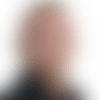METAIRIE, La. -- If anyone can properly evaluate and implement the NFL's new kickoff rules, New Orleans Saints coach Sean Payton certainly qualifies.
Payton, who joined the NFL's Competition Committee in September 2017, helped the eight-member committee shape the proposal that was approved at the Spring League Meeting this week.
Of the notable changes, members of the kicking unit can no longer have a running start before the ball is sent downfield, and wedge blocking on the receiving end has been eliminated. Only players who line up in the setup zone, which falls between their own 40 and opponents' 45-yard line, can perform double-team blocks.
With so much to absorb before the start of the regular season, Payton admits there will be an adjustment period for teams around the league before the new rule opens the door to more energizing play on returns.
"There's no template really to look at," Payton said Thursday on the third day of Saints organized team activities. "I think in the first quarter of the season, I think you're going to see a safer play and I think you're going to also see a more exciting play."
Outside of player safety, Payton's last point is arguably the biggest reason to get excited about the new rules.
The percentage of kickoffs resulting in touchbacks has more than tripled over the last 10 seasons. In 2008, just 14.7 percent of kickoffs resulted in touchbacks, but rule book changes have spurred a spike in touchbacks over the last decade.
The first change took place in 2011 when the NFL moved the starting kickoff spot from the 30-yard line to the 35 in order to reduce high-speed collisions, resulting in a 44.6 percent rate of touchbacks, up from 16.8 in 2010. When the NFL moved touchbacks to the 25-yard line in 2016, the rate of touchbacks went to 59 percent from 57.4 the previous season.
The NFL experienced a slight decline to a 57.8 touchback percentage in 2017, but the new rule should help decrease the number even more when considering the opportunities for more returns.
"I think you're going to see teams that approach it with the return in mind that's different," Payton said. "It's going to change a little bit of the body types who might be on that unit with eight guys deployed in the first 15 yards. So, we're discussing it and spending time on it now, and yet there's no point of reference. I think you'll see it especially early in the season, you're going to see some exciting plays."
Saints special teams coach Bradford Banta, who played mostly on special teams during an 11-season NFL career, echoed Payton.
"I think you're going to see kick returns," Banta said. "It's going to be a relevant play and that's what the main goal of these changes was, to make this play relevant again. With the coaches going up there meeting with the league office and meeting with the people in the Competition Committee, I think they've done a good job in finding a good common ground in keeping the play still relevant."
Meanwhile, the Saints are among numerous teams using the offseason months as a teaching outlet for coaches and learning tool for players.
Banta said he previously instructed the players with separate walkthroughs and new individual special teams drills during Phase II of the offseason workout program in preparation of the new rules.
And second-year running back Trey Edmunds, who logged the second-highest amount of special teams snaps (285) for the Saints in 2017, fully embraces the changes.
"This game comes with changes all the time, so it's just about adapting," Edmunds said. "I think it can be beneficial, definitely to the kickoff return team because guys aren't coming at them with a running start -- fast guys.
"It's definitely going to be different at first, just some things you got to play around with at first before we even go full speed with pads on. I'm sure after a week or two, guys will be adjusted and be right back to normal."
And that includes the onside kick, despite the 15-yard setup zone and 10-yard zone between the two sides where no blocking is allowed prior to the ball hitting the ground or touched.
Payton called arguably the most famous onside kick -- the "Ambush" play -- in league history during Super Bowl XLIV against the Indianapolis Colts, and he believes the new rules still allow a kicking unit to catch the receiving unit by surprise.
"Your deployment has to be balanced, but you still have that chance to score, recover an onside kick and score again," Payton said. "Some of our most exciting games have ended that way. But I just think from a spacing standpoint where the return team is aligning is you really have three players left, and I think you're going to see mortar kicks to cavities. And so it'll be interesting to see, especially early in the year."












